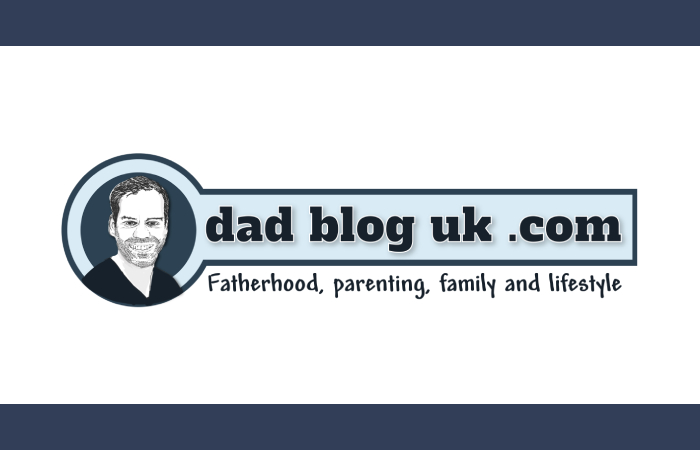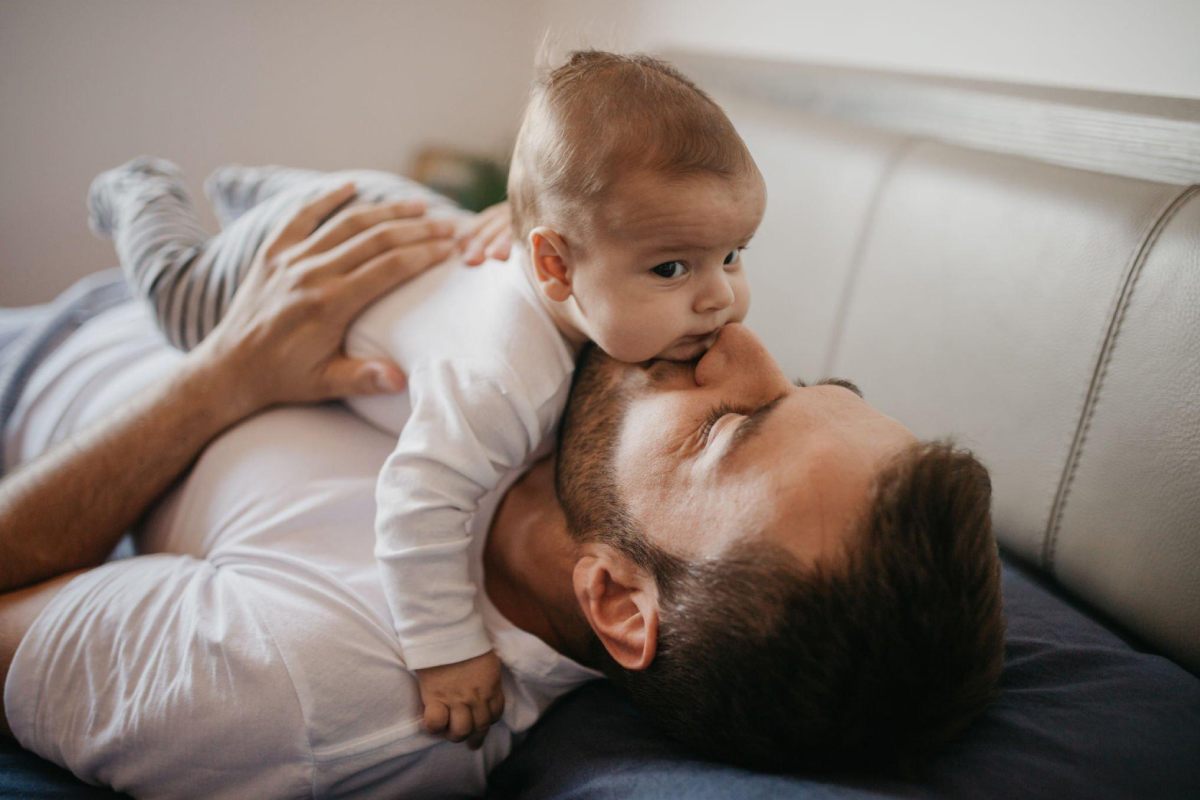Dad Blog UK Gestation And Lactation The Only Two Things Men Can’t Do As Parents – According to the Dad Blog UK website, gestation and lactation are the only two things men can’t do as parents. The journey of parenthood is remarkable, marked by moments of joy, challenges, and endless love. In modern times, parenting roles have evolved significantly, moving away from traditional gender norms. Fathers today are more involved in their children’s lives than ever, contributing to their physical and emotional development. While gestation and lactation are two aspects of parenthood reserved for those assigned females at birth, there’s so much more to being a parent. In this article, we will study the changing dynamics of fatherhood in the UK, focusing on the roles and responsibilities men can and do embrace as parents.
Table of Contents
About Dad Blog UK Website

This website owner is John Adams, a married father of two young daughters. He is also the primary carer for his children. Thus, he writes about all aspects of parenting from the dad’s perspective. He tries to be funny and thought-provoking in equal measure. He has a particular passion for highlighting the sexism he comes across as a man who looks after the children, although he tries not to dwell on it too much. In addition to writing this blog, he has a Huffington Post blog.
The Changing Landscape of Fatherhood:
In the United Kingdom, traditional gender roles have been undergoing substantial changes in recent decades. The concept of fathers as primarily breadwinners and mothers as primary caregivers have evolved. Modern British families often share parenting responsibilities more equitably, allowing fathers to be actively involved in their children’s lives.
Shared Parental Leave
One significant step toward gender-neutral parenting roles in the UK is the introduction of Shared Parental Leave (SPL). This policy allows parents to share time off work to care for their children during the first year of their life. While this is a positive development, it underscores the idea that biology does not solely determine parenting roles.
Father’s Involvement in Child Rearing

Fathers in the UK have become increasingly engaged in various aspects of child-rearing. They change diapers, attend medical appointments, help with homework, and participate in leisure activities with their children. This involvement strengthens the bond between fathers and their children and contributes to children’s development.
Beyond Biology: The Importance of Emotional Support:
While gestation and lactation are unique biological aspects of motherhood, parenting transcends biology. Emotional support is a critical element of parenting that men, as well as women, can provide. Children need love, care, and emotional guidance from both parents, irrespective of gender. Fathers play a crucial role in nurturing their children’s emotional well-being, helping them develop secure attachments and self-esteem.
Unconditional Love
The love parents feel for their children transcends biology. Fathers in the UK, like mothers, experience profound love, connection, and attachment to their children, forming the foundation of a solid parent-child relationship.
Nurturing and Care

Parents, regardless of gender, provide nurturing, care, and emotional support to their children. These aspects are crucial for a child’s overall development.
Shaping Values and Beliefs
Both mothers and fathers have a profound influence on a child’s values and beliefs. Their guidance, morals, and principles help shape the child’s character.
Shared Responsibilities: Diaper Changes, Feeding, and Playtime:

One significant stride towards redefining fatherhood in the UK is the introduction of shared parental leave. This policy allows parents to share the responsibilities of caring for their newborn or adopted child more equitably. While mothers still typically take the bulk of maternity leave due to gestation and initial breastfeeding, shared parental leave acknowledges that fathers can and should play an essential role in the early months of a child’s life.
Shared parental leave promotes the idea that fathers are not merely secondary caregivers. They are co-parents who can provide the same level of care, comfort, and support as mothers. By enabling fathers to bond with their children during the critical post-birth period, this policy challenges the notion that gestation and lactation are the only aspects of parenting that matter.
Education and Intellectual Development

Fathers in the UK are increasingly involved in their children’s education and intellectual development. They help with homework, engage in stimulating conversations, and encourage critical thinking. Active involvement in a child’s educational journey sets the foundation for a lifelong love of learning.
Role Models and Values:
Fathers oblige as role models for their children, imparting values, ethics, and life skills. Teaching empathy, respect, and responsibility is not limited to one gender. Fathers can instill these values just as effectively as mothers, shaping their children’s character.
Discipline and Setting Boundaries:
Establishing discipline and setting boundaries are essential aspects of parenting. Fathers, like mothers, play a crucial role in creating a structured and nurturing environment for their children. Consistency and clear expectations are vital for a child’s growth and development.
Building Confidence and Independence:
Fathers contribute significantly to their children’s confidence and independence. Encouraging exploration, providing support during challenging situations, and allowing children to make decisions are all essential parenting tasks not limited by gender.
Nurturing Special Interests and Talents:
Supporting a child’s interests and talents is an essential part of parenting. Whether it’s sports, arts, or academics, fathers can be equally involved in nurturing their children’s passions and talents, helping them flourish in various areas.
Household Responsibilities:
In modern households, fathers actively participate in household chores and responsibilities. This shift lightens the load for mothers and sets an excellent example for children about gender equality and shared responsibilities within a family.
The Emotional and Developmental Role of Fathers
Fatherhood is not solely about performing practical caregiving tasks; it also encompasses the emotional and developmental well-being of the child. Research consistently shows that involved fathers profoundly impact their children’s cognitive, social, and emotional development. They contribute to their children’s self-esteem, problem-solving abilities, and communication skills.
Fathers can engage in various emotionally nurturing activities vital for a child’s growth. These include reading bedtime stories, providing emotional support, offering guidance, and simply spending quality time together. Gestation and lactation may be unique to mothers, but a child’s emotional connection with their father is just as crucial.
Single Fathers and Same-Sex Parenting:
It’s important to note that not all fathers fit the traditional family mold. Single fathers and same-sex parents are on the rise in the UK. These parents demonstrate that caregiving and love are not limited by gender or family structure. They face unique challenges and joys, contributing to the rich tapestry of parenting experiences.
Conclusion:
While gestation and lactation remain unique to those assigned females at birth, parenting is a multifaceted journey in which fathers play an indispensable role. The dynamics of fatherhood in the UK have shifted significantly, with men actively participating in childcare, emotional support, education, and household responsibilities. Parenting is a shared responsibility, and the roles of mothers and fathers continually evolve to provide children with the love, care, and support they need to thrive. Fathers are capable of being incredible parents, and their unique contributions should be celebrated and recognized. Parenthood is not confined by biology but is a shared journey of love, growth, and nurturing the next generation.


